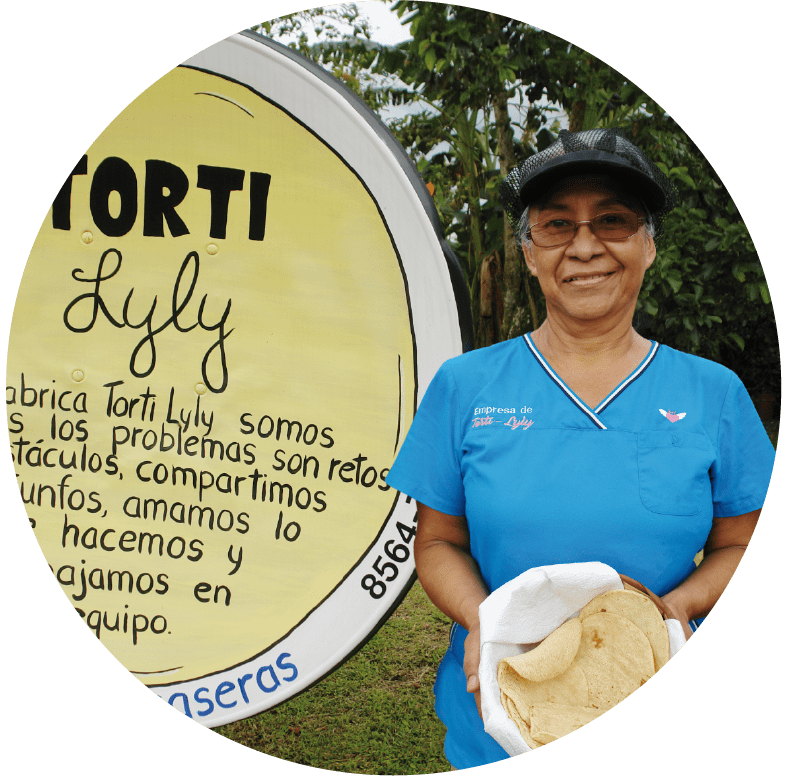The Sistema de Banca para el Desarrollo (SBD or Development Bank System) is complementary to the Financial System. It possesses resources of different kinds and the legal authorizations necessary to significantly meet the demand for financing of micro-, small-, and medium-sized enterprises (MSMEs).

A significant source of the Development Bank System’s resources originated in the breakup of the State banking monopoly, which required private banks in Costa Rica to allocate a percentage of short-term deposits to grant loans to MSMEs with conditions that promote and facilitate their growth and development.
Article 59(i) of the National Banking System Organic Law instructs private banks to permanently maintain a loan balance in the Credit Fund for Development equal to seventeen percent (17%) of their total 30-day or less term deposits, in both national and foreign currency, after deducting the corresponding reserve.
If all deposits are made in national currency, then a balance of only fifteen percent (15%) needs to be maintained.
This is the list of the different programs offered by our accredited Financial Operators.
The Credit Fund for Development is administered equally by the State banks.
Alternatively, section ii) requires private banks to have a minimum of four agencies or branches dedicated to basic banking services, including both lending and borrowing, distributed in the Chorotega, Pacífico Central, Brunca, Huetar Atlántico y Huetar Norte regions, as well as to maintain a balance equal to at least ten percent (10%), after deducting the corresponding reserve, of its total 30-day or less term deposits, in both local and foreign currency, in loans targeted at programs that must be submitted to the Board of Directors for review and approval.
Learn about all the current programs
At the passive interest rate calculated by Costa Rica’s Central Bank, to be adjusted and reviewed quarterly. This rate will be set at four percent (4%) whenever the calculation results in a lesser percentage.
At the private bank’s average net interest rate of six-month term deposits calculated by Costa Rica’s Central Bank, to be adjusted and reviewed quarterly. This rate will be set at three percent (3%) whenever the calculation results in a lesser percentage.
If private banks channel resources through a second-tier bank, the Board of Directors will set a preferential rate.


Each public bank, except for Home Mortgage Bank (BANHVI), must create a Financing Fund for Development to which it must allocate annually at least five percent (5%) of its net profits after income tax, to finance SBD beneficiaries who submit viable, productive projects. This financing will be awarded based on each project’s requirements.
Detalle | Tipo programa | Tasa colones activa referencIa para el BENEFICIARIO FINAL | Tasa dólares activa referencia para BENEFICIARIO FINAL | Comisión única hasta... |
|---|---|---|---|---|
FONADE | 2DO.PISO | TD más margen hasta: 6% interm.financieros y 10% microfinanc | NA | 1,5% |
FONADE | DIRECTO 2DO.PISO | TBP-BCCR hasta: 6% interm.financieros y 10% microfinanc | NA | 1,5% |
FCD | DIRECTO 2DO.PISO | TBP-BCCR, piso 4% 50% TBP hasta 6% intermediarios y 10% microfinanc | TCD-6M, piso 3% 50% TCD hasta 5% interm. | 1,5% |
Inciso ii | DIRECTO 2DO.PISO | TBP-BCCR, piso 4% 50% TBP hasta 6% intermediarios y 10% microfinanc | TCD-6M, piso 3% 50% TCD hasta 5% interm | 1,5% |
Regarding the financial purposes and indebtedness of FONADE, in addition to best practices on the subject, the following policies apply:

To fulfill the purposes as established, the Board of Directors, through the Technical Secretariat, is authorized to autonomously negotiate, contract, and execute medium- and long-term internal and external debt up to a maximum level of indebtedness equal to 5.5 times FONADE’s assets.
For this, the Board of Directors will pre-approve the following conditions:

FONADE may securitize its future revenue streams, assets, or a predetermined set of assets and corresponding cash flows.
The securities resulting from the securitization will be negotiable per the current mechanisms and rules governing the securities market. They may be acquired by any public or private entity, both national and foreign, including pension operators.
FONADE resources will be allocated as follows:
For this purpose, the Board of Directors will allocate annually at least twenty-five percent (25%) of the resources from Article 59(h) of Law No. 7092, Income Tax Law, dated April 21, 1988, commonly called the “offshore banking tax.” FONADE will apply international best practices to develop these programs.
The Development Bank System’s resources are exempt from all taxes and will not be considered part of the minimum legal reserve requirement. This provision will also apply to financial operators who make use of these resources.
These resources are channeled through a coordinated group of 99 entities that place loans based on each beneficiary’s profile and market segment.
The beneficiaries established by law are micro-, small-, and medium-sized enterprises; entrepreneurs; micro-, small-, and medium-scale farmers; and associative business models. Moreover, priority sectors include women, senior citizens, ethnic minorities, clean production projects, persons with disabilities, young entrepreneurs, development associations, cooperatives, and lesser-developed areas.
Each financial operator has its own policies, however, some of the factors that are analyzed are:
